- Home
- Todd Strasser
Summer of '69 Page 9
Summer of '69 Read online
Page 9
There may not be any atheists in foxholes, but I’m not in a foxhole . . . yet. I spoke to Charles on the phone last night. He said not to sweat. We’ll meet on Monday to discuss it.
“It’s under control,” I tell Milton, uncomfortably aware that it’s not. “What do you hear from Rudy?”
“He’s really depressed. Can’t find a decent piano. When you’re at his level, every day that you don’t practice you lose a little bit. At this point, he thinks it’ll take months to get back to where he was.”
If you get back to where you were, aren’t you still where you are? Or are you where you were before you got back?
I think liftoff may have begun.
The first time I tripped was November of junior year. Grass had been on the scene for a couple of years, but psychedelic drugs like mescaline, peyote, and LSD were just beginning to find purchase in the suburban New York high-school landscape. The three of us got together early on a Saturday morning at the house of a kid named Stuart. Arno, Stuart, and I dropped. Milton came along to chaperone.
Because of all the stories about people going apeshit while tripping, Stuart wouldn’t let us in his house. So after we dropped, we climbed up on his roof and watched planes become huge silver hawks, and clouds turn into pink and green faces. We walked to a nearby pond and tossed rocks into the glassy water while Milton expounded on how the ever-widening ripples mirrored the ever-expanding universe. (Maybe he doesn’t need acid to trip.) We wandered over to the country club to play tennis even though the nets had been taken down for the winter. Each bouncing white ball was trailed by dozens of round white afterimages.
Around four in the afternoon, we disbanded. When I got home, Mom and Musclini were waiting at the front door with stern expressions. They ordered me into the living room. Had a neighbor seen my friends and me on the tennis courts behaving strangely and called them?
My parents sat at opposite ends of the couch. I sat in a low easy chair across from them.
“We know you spent the day with Arno, Milton, and Stuart,” Mom said accusingly. “We spoke to their parents.”
While not tripping as intensely as I had been earlier, I was still having some bizarre hallucinations. Even though our living-room floor is made of slate, when I reached over and pressed my fingertip down, it created a depression about half an inch deep in the stone.
“You all left at the same time this morning,” Mom went on. Her face had started to resemble a gargoyle’s. Her skin was concrete gray, mouth beak-like. “You told us you were going to Milton’s, but you didn’t. Milton told his parents he was coming here.”
I pressed my finger deeper into the slate and wondered how screwed I was. Acid was serious stuff. It was rumored that under its influence people had tried to chew the bark off trees, committed murder, and, God forbid, indulged in orgies.
“You went to Stuart’s house, didn’t you?” Musclini’s hair was growing longer and whiter by the second. He’d begun sprouting a long white beard as well.
“We’ve told you we don’t want you hanging around with him,” said Mom. Were those red earrings or flames flickering from her pointed gargoyle ears?
Looking like a white-haired maharishi in a gray sweatshirt and blue dungarees, Musclini leaned forward, hands clasped, looking grim. In his eyes, I was already a failure. I’d quit tennis, refused to do household chores, taken up smoking, begun to grow my hair long, and didn’t care for wheat germ.
He cleared his throat. The moment of truth had arrived: the ax was about to fall. Gravely, he asked, “Did you . . . smoke pot today?”
By now a small solar system of miniature planets and lollipops was orbiting his head. His face was barely visible beneath the long white hair and beard. Only squares over thirty called it “pot” and referred to “potheads.”
“Yes,” I lied.
They grounded me for a month.
Looming up in the cityscape, buildings inhale and exhale. Like tent caterpillars and woolly mammoths, they are carbon-based life-forms that burn fuel for energy and need water to survive. As with other living creatures, they will eventually grow infirm and fall down.
“Small houses grow into big houses, then into small buildings, and finally into big buildings.” In the GTO, with the rush of the Windowpane still coming on, I expound on urban sprawl while wearing a red-and-white-striped ski hat I found on the seat next to me. It’s a baby Cat in the Hat hat that hasn’t yet grown all its stripe stripes.
“You’re so right.” Arno reaches back over the seat and pulls the hat hat off my head head.
“What’d you do that for?”
“I’m going to need it.”
“You already have red stripes.”
Milton laughs.
“Who are the Panther Twenty-One?” Lucas the Inquisitive has paused to consider the words “Free the Panther 21” spray-painted on the stone wall beside Central Park.
“A group of Black Panthers who’ve been arrested on trumped-up charges of planning to blow up police stations,” Milton says.
Arno hooks a finger through one of Lucas’s belt loops and tugs. Buses rumble past, taxis honk, waves of headlights course through this dense, dark, humid urban fishbowl.
It’s the first time Lucas of Long I Land has been to the city since May, when Robin, her parents, and he marched in an antiwar demonstration around Greenwich Village, chanting “No more war!” and carrying signs that said HELL NO, WE WON’T GO!
Back then the war was an abstraction, a subject for passionate debate over mugs of Constant Comment and crappy-tasting carob brownies. Tonight, the war is real and immediate. It’s a huge black-and-red-striped panther with long pointed white fangs stalking in the shadows.
Lucas wraps his arms around a sidewalk tree and peeks back.
Arno groans with aggravation. “Now what?”
“It’s following us.” Lucas feels the rough bark against his cheek, the sap inside the tree flowing like water through a hose. The Windowpane’s rush continues to intensify.
“What is?” Milton asks.
“The war panther.”
“How many hits of Windowpane did you say you had?” Arno asks.
“Two.”
“And how many do you have now?”
“Uhhh.”
“For Christ’s sake.” Arno pries the tree hugger away from the tree.
On a dark, winding walkway through the park, it’s now Lucas with a finger through Arno’s belt loop. Flying bugs rocket in kamikaze orbits around lampposts. Someone in front of them has a halo. Out of the dark, over the distant honking and rumble of engines, comes the bell-like knell of soaring guitar notes.
“B.B. King,” says Milton.
The music builds, the crowd congesting on the walkway. The rush of the Windowpane has grown into an intense audiovisual swirl. Around the Wollman skating rink the horde is thick and milling, the music searing. The show itself is hidden behind tall walls. Outside those walls, huge shadowy tank-size war spiders creep behind the dark trees.
Lucas the Paleontologist wants to tell Arno and Milton about the black-and-red Vietnamese pterodactyls gliding in and out of the silver night clouds above. But the complex process of conjuring words, placing them in the correct order, and then speaking them aloud seems beyond his capability.
“I’m supposed to meet Clyde up there.” Arno points at a hill-size lump of gray art-class clay and pulls on the red-and-white knit ski cap cap.
“Who?” Milton asks.
From Lucas’s mouth, unbidden, comes, “Giant Clyde-eyed cyclops war panther.”
Arno ignores him. “The dealer. Look for a guy with a beard and a red bandanna.”
Lucas the Ignored is led up gummy steps to a doughy crag. Above them, goat-legged black-pajamaed Vietcong satyrs scamper over the clay. Across the walkway below, light foam effervesces over the tall walls around the skating rink where King B.B. rules the air.
“Here, pussy pussy,” a voice in the dark growls. Someone with a beard, wearing a red bandanna l
ike a skullcap, steps out of the shadows. It’s Abe Lincoln with deadly red eyes, wearing a sleeveless denim jacket adorned with medals, chains, and patches. His bare arms are tattooed with skulls, daggers, and roses. The acrid scent of long-marinating body odor wafts into Lucas the Terrified’s nostrils.
Even when one is tripping, there can be moments of clarity. Or, at least, of imagined clarity. A shudder quakes through Lucas. This is not some enterprising young college dealer picking up extra scratch. Nor some struggling musician pulling together next month’s rent. This is a real, honest-to-God, smelly, tattooed, scary-looking criminal.
We’re not in the suburbs anymore, amigos.
For a moment, the tres amigos are speechless. Then, possibly to break the ice, Milton says, “Hells Angel?”
“Pagan’s, dumbass.” President Lincoln turns so they can see the big white-and-blue Pagan’s patch on the back of his jacket.
“Why the apostrophe?” asks Lucas.
“Ignore him; he’s tripping,” Arno says.
The Great Emancipator sets his hairy reddened eyeballs on Arno. “What’s with your face, man?”
“Barbecue,” Lucas the Wit says.
“Shut the fuck up,” Arno snaps, now all tough guy in front of Bizzaro Abe, the anti-president. Then says, “Sunburn.”
“Where’s the bread?” The Rail-Splitter extends a hand. Long, dirty nails with black crescents. The Pagan’s definitely need to bone up on punctuation and personal hygiene. Miss Landers would have made mincemeat of Clyde. Nothing drove her crazier than misplaced apostrophes. Miss Landers on a chopper wearing a leather vest with paper-clip chains. Tattooed on her arms, the fourteen punctuation marks of English grammar. The patch on her back: “Hell’s Grammarians.”
Arno hesitates. “It’s Owsley, right?”
“Crowley, yeah,” says Honest Abe.
“Owsley,” Arno corrects him. “The Grateful Dead’s guy.”
“Right.” Red-eyed Clyde wriggles his dirty fingers. “So, how about it?”
“As long as it’s Owsley,” Arno says, stalling nervously.
“Look, you want the acid or not?” Impatient Abe snaps. The ominous tone in his voice is only outdone by the reddish menace in his eyes.
Or maybe he has pinkeye.
Arno hands over a small wad. The late great president quickly fans five Ben Franklins, then crushes them in his fist. “Be right back.” He vanishes into the dark.
Even on a double dose of Windowpane, Lucas the Blitzed senses the extraordinary nature of what’s just gone down. He’s never even seen a hundred-dollar bill before. But it’s Milton who gets to the point. “You . . . just gave . . . five hundred dollars . . . to . . . a stranger?”
“He came highly recommended,” Arno says defensively.
“By Good Housekeeping?” asks Lucas.
“Shut your face!”
Loud cheers and applause erupt from the other side of the wall around the skating rink.
“B.B. must’ve finished his set,” says Milton. “Let’s go.”
Still wearing the red-and-white cap, Arno doesn’t move. “Can’t. Gotta wait here for Clyde.”
In the midst of all the noise and movement, a lull descends. Have we heard Arno correctly? Did he actually say he’s not going to see Led Zeppelin?
“Are you serious?” asks Lucas the Dumbfounded.
“Are you tripping?” snaps Arno.
“We’ll save you a seat,” Milton says.
Keeping a tight grip on Milton’s shirttail, I follow while he leads the way through the tightly pressed wriggling bodies. Sometimes a trip is a carefree frolic through soft, flowery meadows, but tonight’s trip has begun to feel more like a high-wire act. Undefined menace lurks at the fringes of my peripheral vision, keeping me on edge as we are pushed forward by so many sperms trying to swim past the tall wooden walls, yearning to enter Led Ovum. Inside, the floor of Wollman Rink is an unruly sea of freaks and folding metal chairs. Milton snags three toward the back, in front of the bleachers. I’m profoundly glad to sit. Being erect while peaking on acid leaves so much unpredictable space between one’s head and the ground.
All around us, people loudly chatter. The sense of anticipation is palpable. The Who and Led Zeppelin are the biggest rock acts on the planet. On the stage, roadies push equipment this way and that. The Four Tops’ “Standing in the Shadows of Love” is being piped through the PA system. The audience is standing in the shadows of houselights. Waves of voices roll forward and smash against the stage in mammoth splashes of rainbow audio foam. Next to me, Milton is reading a magazine. I think it’s Life. The page he’s looking at says “One Week’s Dad” and has dozens of little black-and-white pictures of fathers.
The stage goes dark, and the crowd begins to roar with excitement. Milton helps me to my feet. “Train Kept A-Rollin’” explodes out of the PA, and the crowd goes berserk. I stick my fingertips into my ears. It’s the loudest music I’ve ever heard. The spotlights burst on and there’s the band.
“There’s something wrong with their heads!” I shout at Milton.
“They’re wearing cowboy hats!” he shouts back.
The cheering audience is almost as loud as the music. The sound is so gargantuan, so concussive, that the Windowpane has to build a protective glass fallout shelter around my head. From the calm inside, I observe the raging audio typhoon. When preening, prancing Plant and plodding Page launch into “I Can’t Quit You Baby,” you can feel the air rattle. The music batters us like sheets of rain in a storm. A beach ball blows past.
Halfway through “Dazed and Confused,” weird, haunting dinosaur moans fill the night. A spotlight narrows on Page, who is sawing his Les Paul in half. The crowd roars.
“He’s playing with a violin bow!” Milton shouts as excitedly as if the Yankees have won the seventh game of the World Series with a Joe Pepitone walk-off home run.
But the unbearably loud din, and all these pressing bodies, is too much for my double-dosed, hyperaware senses. The glass fallout shelter shatters. Pelted by hailing music crystals, I’m forced to retreat deeper inside my skull until I’m floundering at the edge of a dark precipice. On one side, a bottomless black chasm. On the other, an onslaught of marauding horrors stampeding toward me. Time to sit, clap my hands over my ears, and try to hold it together.
Focus narrows. In the hurricane inside my head, flying mental debris, painful memories, and dark thoughts carom and ricochet. Musclini calling me a goddamn goofball. Robin freaking about the undercover-narc toll collector. Chris using a cigarette to burn black leeches off his legs. Mom pulling me toward train tracks. Tinsley pulling my hand into her blouse.
Jimmy Page’s sawing guitar is grating iron against stone, then the screech of locked train wheels. John Bonham’s bashing drums are pounding earthquakes to the ears. Though seated, I try to bend lower to get out of the sonic maelstrom.
But there is no shelter in Wollman Rink tonight. Nowhere to hide inside my head. A black-winged beast with the paterfamilias’s head flaps its scaly wings. In one claw, it grasps tennis rackets. In the other, a yellow Wiffle bat.
“Goddamn goofball!” it caws. “Underachiever!”
From above, napalm bombs rain down from the open bays of tetradactyl B-52s. It’s Robin’s revenge, the poetic irony that the final acid trip of my life should be the worst. No one gets out of here alive. I bend lower until a sharp pain erupts at my waist. My bright-red appendix is the size of a sweet potato, filled with the noxious pus of regret. I’m chained by wrist and ankle to bare rock, my guts being torn open by the ravenous black-winged vulture. Goddamn goofball! Underachiever! Loser!
It’s true! I am a goofball. A weak, pathetic loser. I don’t deserve Robin. I don’t deserve life. I deserve to be added to the kill ratio in Vietnam, a useless, expendable bit of protoplasm sacrificed to the God of Capitalist War Machines. Can I tell the draft board that the proof that there is no Supreme Being is that no loving and caring god would allow so many decent young men to die so needlessly?
But the draft board doesn’t give a shit. Not as long as it needs lambs for the slaughter.
Now from out of the dark roars the worst specter of all, the glowering many-headed hydra of everyone I’ve disappointed — my father, mother, Robin, Miss Landers. The hydra’s long sharp claws extended, keen on tearing me to —
An arm goes around me. Fingers pry my hands away from my ears. Through the enormous rupturing Zeppelin apocalypse worms a savior’s voice: “It’s okay, Lucas. It’s just the acid. It’ll pass.”
Hold me, Milton. Don’t let me go.
The speed of dark
In Central Park.
The houselights are on. The stage is empty, but the crowd refuses to leave. Mammoth waves of “More! More! More!” fill the air. Milton and I are on our feet. My eyes are watery and my cheeks are wet; I didn’t know I’d been crying.
The band returns, plays an encore, leaves again. The crowd shouts for yet more. Space and time are still quite squishy, but having been rescued by the ever-watchful Milton, I’ve crawled out of the blackness and back from the terrible abyss. I never thought of this before, but there was a famous poet named Milton.
Loudspeakers tell the crowd it’s time to go, but no one listens. They keep shouting “More!”
The band comes back and plays another encore.
And then another.
Finally, dazed and grinning crazily, the crowd allows itself to be coaxed toward the exits. Some, like Milton, linger a little longer, struck dumb by the spectacle. Even after being temporarily overcome by that brief, exhausting bad trip, I’m aware that this hasn’t merely been a concert. It’s been an extravaganza. More grandiose, sonically sumptuous, and just plain strange than anything we’ve ever before witnessed. (Is it possible that somewhere during “How Many More Times,” Page segued briefly into the theme from The Woody Woodpecker Show?)
The rink is emptying, leaving behind disarray: folding chairs on their sides, flattened, turned backward; the floor awash with empty beer cans, crumpled cigarette packs, soda bottles. On the PA, someone exhorts us to quickly head to the exits.

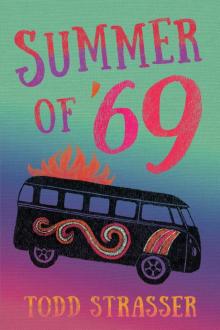 Summer of '69
Summer of '69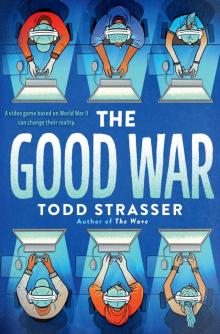 The Good War
The Good War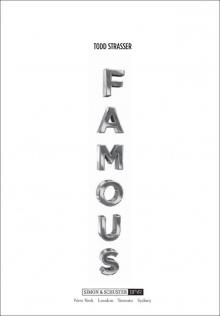 Famous
Famous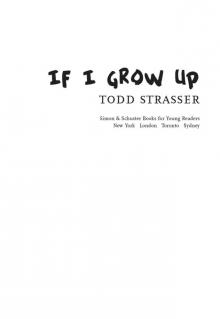 If I Grow Up
If I Grow Up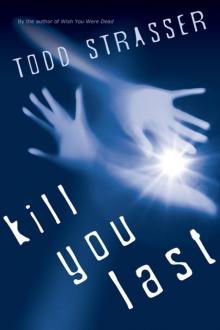 Kill You Last
Kill You Last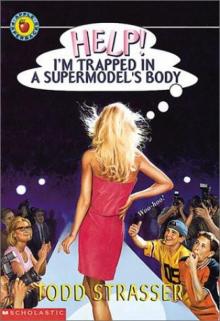 Help! I'm Trapped in a Supermodel's Body
Help! I'm Trapped in a Supermodel's Body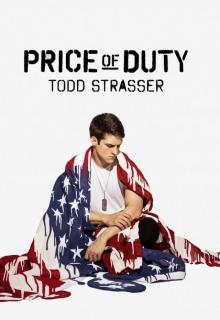 Price of Duty
Price of Duty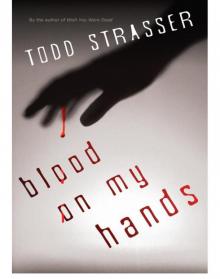 Blood on My Hands
Blood on My Hands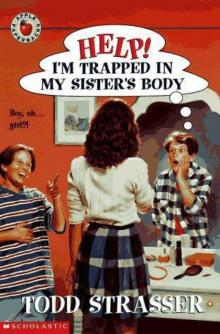 Help! I'm Trapped in My Sister's Body
Help! I'm Trapped in My Sister's Body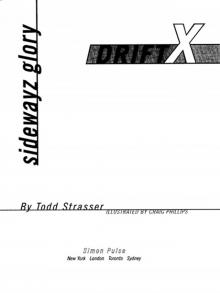 sidewayz glory
sidewayz glory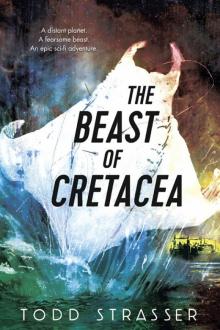 The Beast of Cretacea
The Beast of Cretacea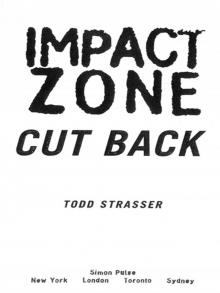 Cut Back
Cut Back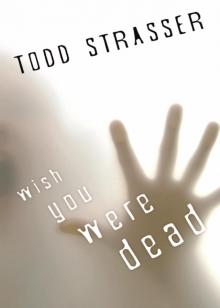 Wish You Were Dead
Wish You Were Dead The Wave
The Wave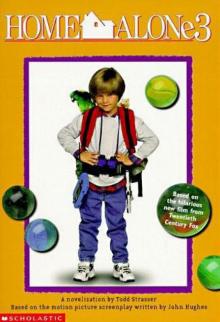 Home Alone 3
Home Alone 3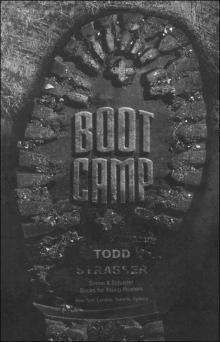 Boot Camp
Boot Camp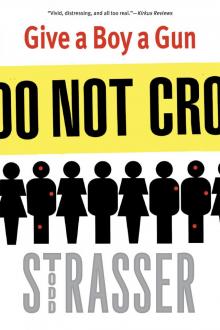 Give a Boy a Gun
Give a Boy a Gun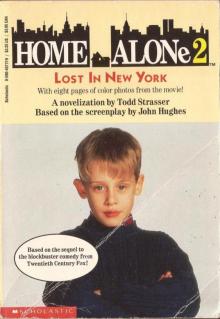 Home Alone 2
Home Alone 2 The Shore
The Shore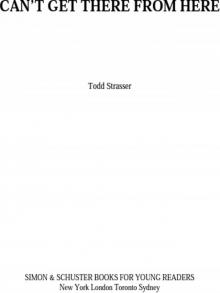 Can't Get There from Here
Can't Get There from Here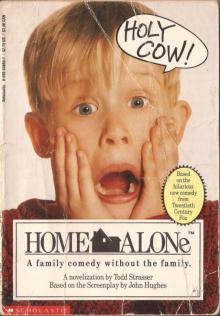 Home Alone
Home Alone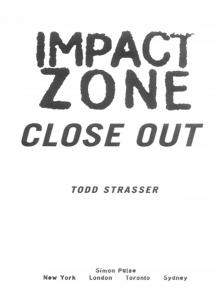 Close Out
Close Out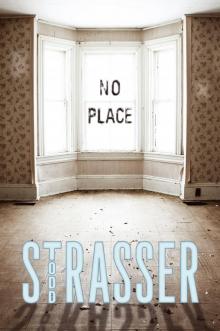 No Place
No Place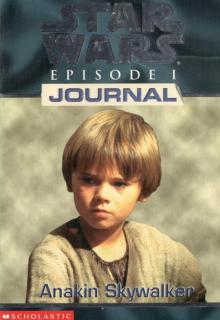 Star Wars - Episode I Journal - Anakin Skywalker
Star Wars - Episode I Journal - Anakin Skywalker